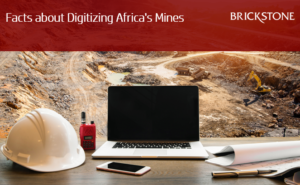Legal Framework Reform in Setting up Africa’s Mining Industry for Exponential Growth
The Africa’s Mining Industry
Africa houses a wealth of hugely valuable and extractable natural resources, making its mining industry one of the most important in the world. According to Statista, the continent is a major producer of many key mineral commodities, with bountiful reserves of metals and minerals such as gold, diamond, cobalt, bauxite, iron ore, coal, and copper across the continent.
The Africa mining industry remains hugely attractive for foreign investors, as the industry is estimated to hold roughly 30 percent of the known global mineral reserves, and even a higher share of deposits of diamonds, vanadium, manganese, platinum, cobalt and gold.
However, despite the richness and promises Africa’s mining industry holds, African countries face many challenges that have prevented them from reaching economic transformation, growth and development. Core to these challenges is the lack of efficient legal framework and poor governance models.
This article by Brickstone reviews some institutional reports and publications on the need for legal framework reform in the growth and development of Africa’s mining industry.
Legal Framework Reform in the Growth of Africa’s Mining Industry
Africa’s mining industry is a critical industry, driving economic growth and development on the continent as it holds just about every mineral imaginable. The sector has contributed and continues to contribute a significant amount of fiscal revenues, foreign currency reserves, and employment to African countries. For instance, countries like South Africa, Nigeria, Zimbabwe, Angola, Zambia, and Botswana owe their existence to the sector.
Unfortunately, the Africa’s mining industry is believed to have some of the world’s largest untapped mineral reserves as some of these African countries, for the most part, yet experience high levels of poverty. This is as a result of the several challenges the industry is faced with. The lag in proper legal framework and governance structure has been identified by experts to be one of the major obstacles hindering this development and full realization of the industry’s potential. By working with unscrupulous individuals, the government loses a significant amount of revenues to unscrupulous traders.
The applicable laws in various African countries are either archaic or not effective, and for their governments to improve their mining sectors, such legal frameworks need to be updated and improved on. The governments should also take the lead on advancing and enhancing mining practices through the regular issuance of regulation orders and the periodic reviews of policies and guidelines.
Aside from being archaic, some of these laws at both national and local levels are somewhat ambiguous. For example, in South Sudan, the constitution declares all the mineral wealth to belong to the central government.
Additionally, AllAfrica affirmed that the way in which the governments of those countries approach the mining industry is imperative, pronouncing inequality and the natural resource curse. This has made a few individuals fabulously wealthy over others; while the richest of the rich get richer, the poor get poorer. For Africa’s mining industry to ensure its development leads to broad-based and shared prosperity for all, the right legal framework should be put in place and equally implemented by the governments of those countries.
The Africa’s mining industry will only reach its full potential to deliver economic transformation in Africa if it is supported by a robust legal, regulatory, and governance framework.
Taking Australia as an example, which currently attracts the highest amount of exploration expenditure of any country in the world. Despite being an African country, it has focused its mining industry on minerals and resources, which it is a leading exporter, and is currently a world leader in terms of exports of iron ore, coal, gold, and cobalt. Australia also offers an excellent case study to countries in Africa on how to mitigate the resource curse by applying the right kind or most conducive legal framework. Read more here.
Its legal framework, combined with its governance system, also inspires confidence among investors when it comes to the safety and certainty of their investments. If other African countries can follow suit, we’ll be setting up the Africa’s mining industry at large for a massive growth.
Read more here.
Why not contact us to make your Project Happen
Our advisors and consultants would be able to schedule an online meeting with you to discuss your project with the overall objective of seeking ways to achieve the “bankability” and protection of the long term asset value of your project. Request a Meeting Now






